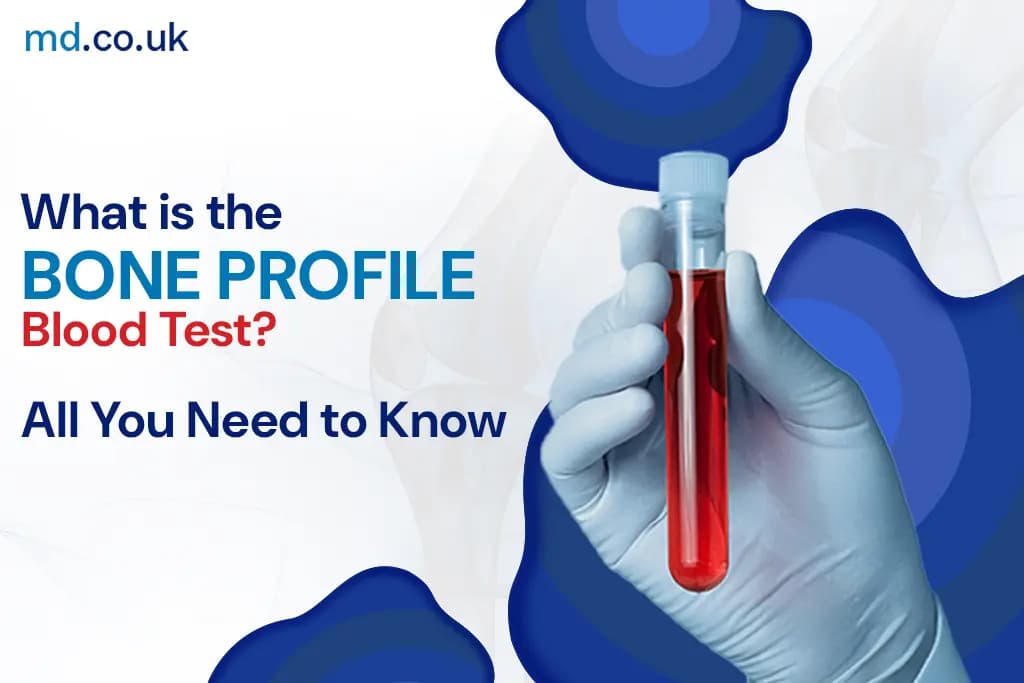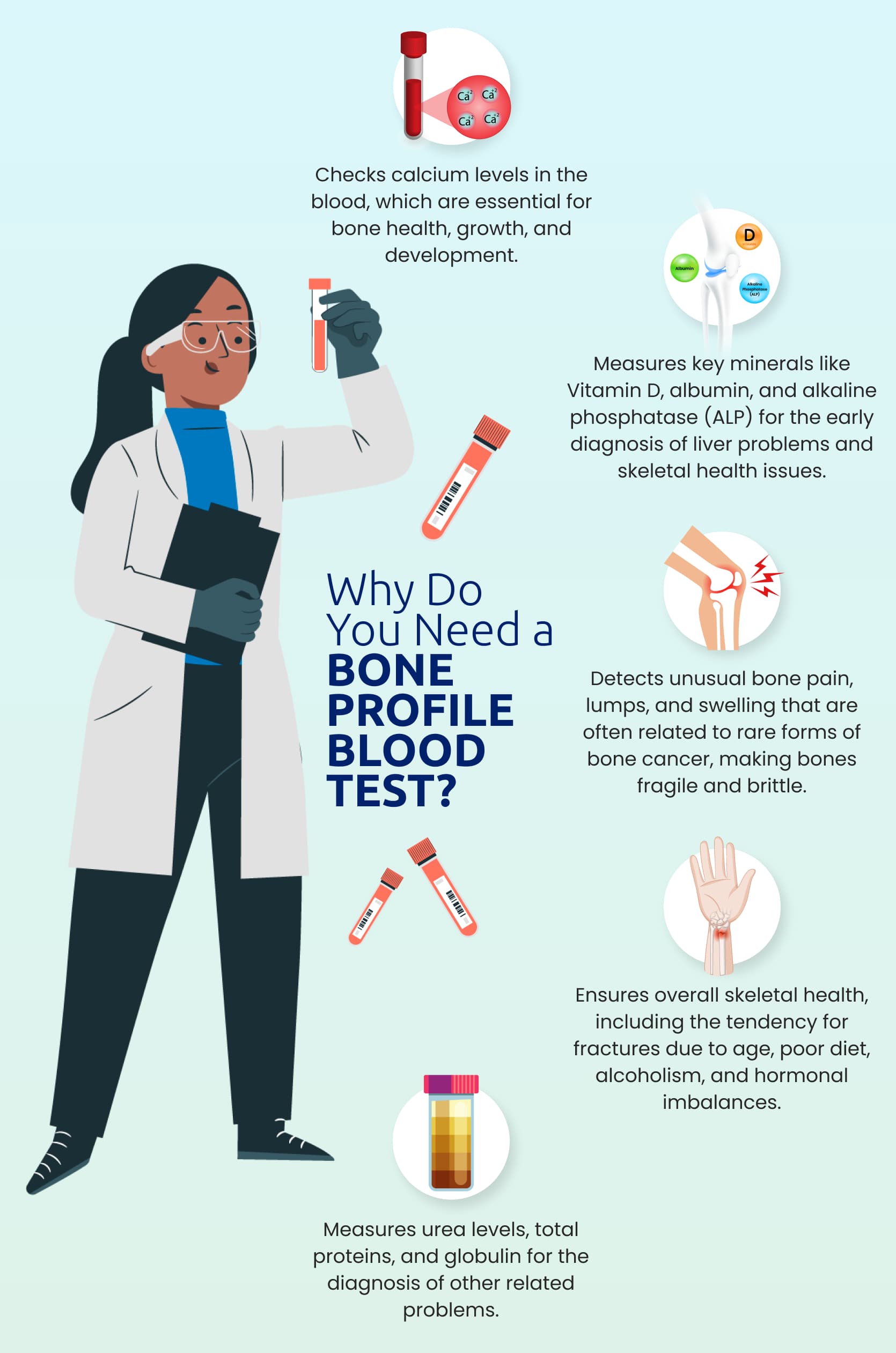
What is the Bone Profile Blood Test? All You Need to Know
Blood is a mixture of various components, including electrolytes, vitamins, oxygen, and minerals. A small blood sample can reveal a lot about your current health status, depending on which part of the body is being examined. This makes blood tests particularly important for individuals.
In this blog, we are going to explore how bone profile blood tests assist in determining skeletal health and analysing your bones. So, don’t miss out on reading it.
Bone Profile Blood Test: An Overview
A bone profile test analyses and measures the minerals, proteins, and enzymes present in the bones. This test is crucial for monitoring bone health, ensuring proper development, and assessing the bones' ability to self-repair. Maintaining skeletal health is essential for correct posture, movement, and overall well-being. However, with age, bone health naturally deteriorates, making this test far more necessary. In addition to regulating bone health, it may facilitate the diagnosis of the following conditions:
Osteoporosis: A skeletal condition that makes the bones brittle and fragile, increasing the likelihood of fractures. In addition to age, hormone imbalances, excessive alcohol consumption, and poor eating habits can also contribute to this condition.
Paget’s disease of bone: This common bone disease affects the renewal or turnover of bone tissue, resulting in the inability of bone tissues to repair themselves. A lack of vitamin D can contribute to this condition.
Bone cancer: Although one of the rarest forms of cancer, it often presents with swelling, lumps, and bone pain. Bones can become highly susceptible to fractures.
Thyroid problems and liver disease: The bone profile can detect parathyroid and thyroid disorders, which are responsible for maintaining the balance of calcium and phosphorus levels. It can also diagnose liver problems due to the secretion of various proteins and enzymes.
What Does a Bone Profile Test Check For? What is Considered a Normal Result?
The bone profile blood test monitors a range of bone conditions, as well as diseases that are not directly related to the bones. When ordering a self-test, it is important to be aware of the key minerals that help in developing a bone profile. The test includes the following four key minerals, along with their normal reference ranges:
- Calcium: This bone profile takes the measurement of calcium in blood and considered as most important minerals in promoting your skeletal health. According to NHS, normal calcium range is 2.2-2.6 mmol/L.
- Albumin: Liver secretes this protein and inadequate level reflects lower bone density. This test helps in detection of osteoporosis and NHS says the average range must be 35-50 g/L.
- Alkaline phosphatase (ALP): This enzyme is present in liver cells and bone and incorporates in diagnosing liver diseases and bone disorders accurately. 30-130 u/L is the normal enzyme range for adults.
- Phosphate: Phosphate is chemical loaded with phosphorous, the mineral posing a vital role in overall bone development. It must range from 0.74 to 1.4 mmol/L in a healthy person.
The bone profile is also useful for testing globulin, total proteins, and urea levels.
What to Know Before Performing the Test
As you know that during a blood test, the doctor, nurse or a phlebotomist will withdraw your blood sample and send it to the lab in a vial for analysis. On an average you will receive the results within 72 hours.

Why do you need a bone profile blood test ?
But what interesting part you must know is unlike several blood tests you do not need fasting before bone profile blood test. Surgery is possible without making any drastic change to your lifestyle. If you are under calcium supplements without doctor’s instruction, you are advised to put them off prior to the test. However, you should not miss sharing the information of all supplements you are taking at present to the doctor including calcium, vitamins and vitamin D supplements as it can greatly affect the results.
References:
AgeUK- Osteoporosis- https://www.ageuk.org.uk/information-advice/health-wellbeing/conditions-illnesses/osteoporosis/
NHS – Hypoparathyroidism – https://www.nhs.uk/conditions/hypoparathyroidism/
A V Lunde, E Barrett-Connor, D J Morton (1998). Serum albumin and bone mineral density in healthy older men and women: the Rancho Bernardo Study – https://pubmed.ncbi.nlm.nih.gov/10326059/
South Tees Hospitals NHS Foundation Trust – Albumin: https://www.southtees.nhs.uk/services/pathology/tests/albumin/

We Are Here!
Mon-Fri from 9am to 5pm




